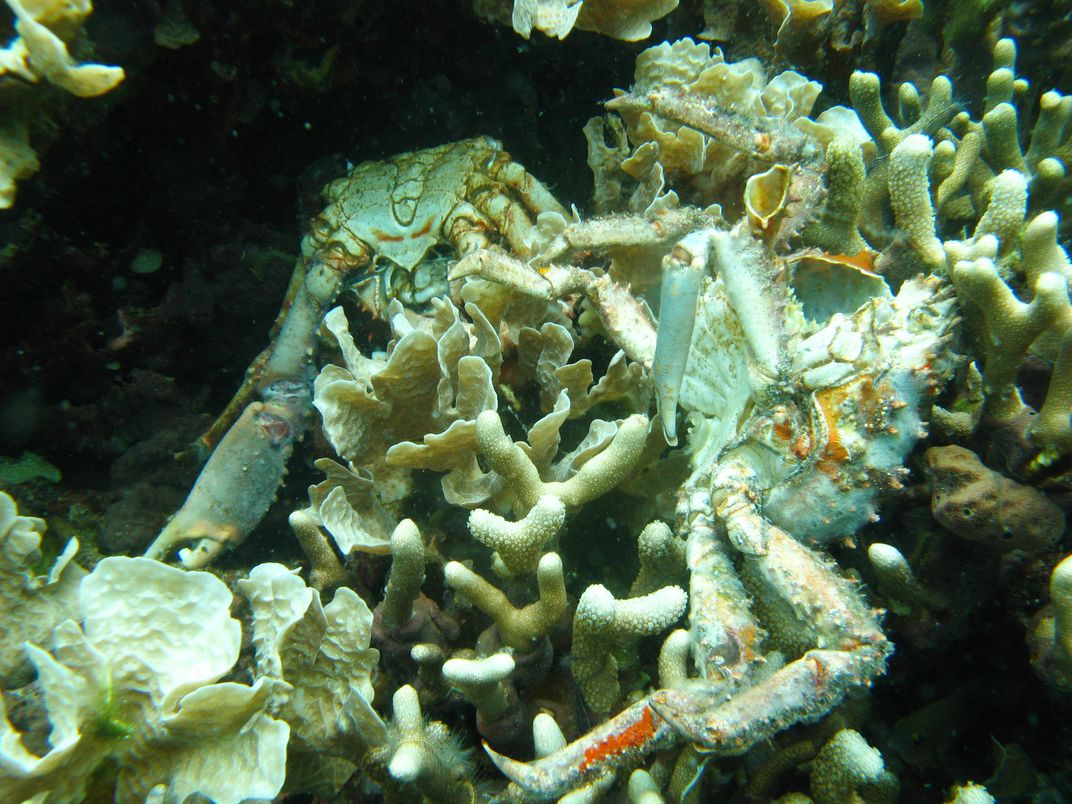SMITHSONIAN ENVIRONMENTAL RESEARCH CENTER
Wait, the Ocean Is Losing Oxygen? Q&A With Denise Breitburg
Marine ecologist Denise Breitburg explains how oxygen loss is crippling our oceans, and why it needs to be included as the tenth “planetary boundary”
:focal(698x690:699x691)/https://tf-cmsv2-smithsonianmag-media.s3.amazonaws.com/filer_public/1a/c7/1ac7cb87-0db8-463c-bb18-5ef67fa93c4f/denise_breitburg.jpg)
Oxygen is a vital element for virtually all animals on Earth and many microbes. But oxygen concentrations are falling in some of the most valuable ecosystems on the planet. According to a recent paper, the number of freshwater and coastal water bodies with little to no oxygen has increased in coastal areas, with hundreds of regions affected worldwide. Meanwhile, in the open ocean, oxygen-deficient waters have increased fourfold since 1960.
In the new paper, published in Nature Ecology & Evolution, researchers around the globe are urging leaders to acknowledge the ocean’s oxygen loss as a new “planetary boundary.” Planetary boundaries are global thresholds for major Earth systems, beyond which humanity cannot safely operate. The nine existing boundaries include climate change and freshwater. In this Q&A, we spoke with co-author Denise Breitburg, a scientist emerita at the Smithsonian Environmental Research Center, on why ocean oxygen should become the 10th planetary boundary. Edited for brevity and clarity.
As the concentration of oxygen in our oceans continues to change, how is life in the ocean responding?
Oxygen affects everything. Animals use oxygen to transform food into energy. When oxygen is insufficient, they don’t have enough energy for basic biological processes ranging from growth to reproduction. It really changes food webs. Sometimes the kind of animals that can do really well under low-oxygen conditions, things like jellyfish, can become more dominant in food webs….Animals have a behavioral response to oxygen. They can follow an oxygen gradient and move out of areas that are low in oxygen to areas that are higher in oxygen. So the distribution of animals, and their abundance within food webs and importance as predators, can really change.
What’s different about oxygen loss in the ocean now, compared to other times in Earth’s history?
If you look at many millions of years, the Earth has gone through periods where oxygen in the ocean has been a bit lower than it is now, as well as long periods where it’s been fairly stable. But since the middle of the 20th century, two things have been happening. We developed and put into widespread use artificially produced fertilizers, and that has been an incredible benefit to humans in terms of producing food to support human populations. But they’ve also resulted in fertilizing coastal water. Since the middle of the last century, more and more areas along coasts, bays and estuaries have been essentially fertilized, and oxygen declined.
Over the same period of time, we’ve had the emergence of problems related to climate change, and especially warming….Warmer water simply can’t hold as much oxygen….But then the warming ocean [also] has affected the circulation and mixing of the water in the oceans. And that reduces the reintroduction of oxygen from the atmosphere and also from the surface layer into deeper water.
“I always fall back on the old American Lung Association motto, which says, ‘When you can’t breathe, nothing else matters.’”
How concerned should the global community be about the impact of oxygen loss in our oceans?
I would say that, in specific areas that are being affected, we should be very worried, especially in places where people are dependent on waters for use for aquaculture and for local fisheries. It can have really big impacts on local economies.
But another reason we should be very worried about this issue is that, in addition to oxygen being very important to the animals in the ocean, it has really important biogeochemical feedbacks. When oxygen is low or absent, it can increase production of greenhouse gases…and so it can actually contribute to climate change.
…
In general, I sort of always fall back on the old American Lung Association motto, which says, “When you can’t breathe, nothing else matters.” And that pretty much sums it up….We’re completely altering these incredibly important ecosystems that Earth depends on. And in many ways, we just don’t know all the consequences of doing that.

What are planetary boundaries? Why is it essential to include ocean oxygen levels as one of them?
One of the reasons that we think it’s important to include ocean oxygen in this mix of planetary boundary processes is really to give it the attention it deserves. The planetary boundary framework has been very effective at focusing policy and public attention on some of the major environmental problems our Earth is facing. It’s important that the loss of oxygen is included among those variables that we pay attention to.
You’ve been part of the Global Ocean Oxygen Network, or GO2NE, since 2016, offering insights on ocean oxygen loss and advising policymakers and stakeholders. Why are networks like GO2NE important for this conversation surrounding oceanic oxygen depletion?
We’ve been successful at incorporating it [ocean oxygen loss]…in things like the U.N. Sustainable Development Goals, because of its potential importance in fisheries and aquaculture….By having this group that includes researchers from all over the world, with all different kinds of specific expertise, we have been able to work with UNESCO and with the U.N. to increase recognition of this problem and better incorporate it in the way we look at the issues we need to be concerned about in our oceans.
The original scientific article, led by Rensselaer Polytechnic Institute, is available in Nature Ecology & Evolution at https://www.nature.com/articles/s41559-024-02448-y. A plain-language summary from Rennselaer is available here.
Mona Patterson is a science writing intern with the Smithsonian Environmental Research Center, and a rising senior at Chapman University. She is studying broadcast journalism and documentary film, with a minor in environmental science, and hopes to pursue a career as a science journalist.
